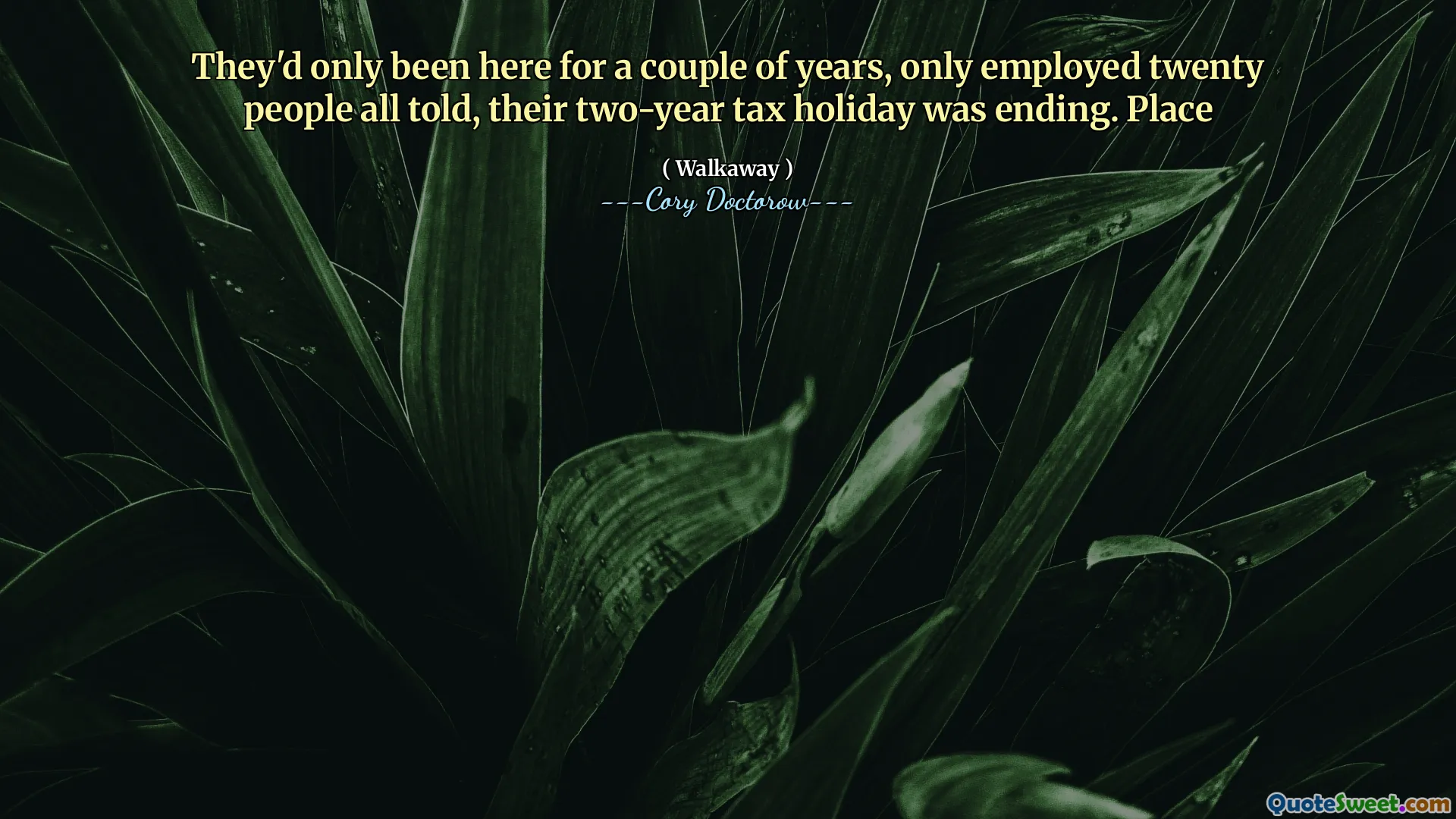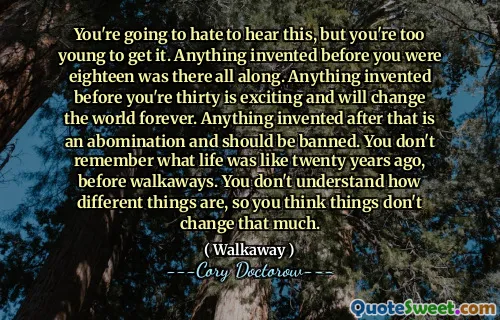
They'd only been here for a couple of years, only employed twenty people all told, their two-year tax holiday was ending. Place
This quote from Cory Doctorow’s Walkaway succinctly captures a moment loaded with implications about business, economy, and community dynamics. The brief description of a company that has been present for only a few years, with a relatively small number of employees, hints at a fledgling or niche operation, struggling in the larger ecosystem of commerce and society. The mention of the "two-year tax holiday ending" adds a layer of tension, signaling the impending transition from a period of financial leniency and incentive to the harsher reality of standard taxation and economic pressure.
On a deeper level, this quote reflects wider themes often explored in Doctorow's work, such as the precarious balance between innovation, survival, and the impact of economic systems on human endeavors. The tax holiday functions as a metaphor for temporary support systems—whether governmental or societal—that allow new ventures or ideas to take root. However, the end of this period is equally telling: it underscores the inevitable challenge of sustaining success once initial assistance or protection is withdrawn.
The quote also invites reflection on the nature of place and stability. The terse ending, "Place," may suggest the significance of location to the business' identity or vulnerability, raising questions about community rootedness and the consequences for the people employed there who depend on the fragile economic situation. This resonates with broader discussions on economic sustainability, local economies, and the social responsibilities entwined with corporate enterprises, all of which are powerful undercurrents within Walkaway's narrative structure.







